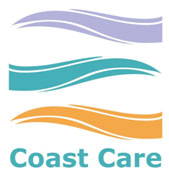
Our coastline faces a number of challenges from coastal erosion to the impact of invasive species, as well as the increased pressure from humans. Indeed, the human pressure involves large volumes of rubbish and waste plastic being discharged in to the environment, particularly plastic that makes its way into our sea!
National Geographic estimated that there are 5.2 trillion pieces of trash in our oceans and in a BBC News article (6th May 2018) entitled ‘Fishing nets and false teeth: Meet the beach debris hunters’ Amy Gladwell refers to a rise in so called ‘eco-friendly’ beachcombing. Although such media coverage may have helped prompt a surge of action from the authorities, industries, companies and individuals, to take some bold steps to reduce plastic use, years of damage has already been done. In fact, centuries and decades of dumping anything from packaging to false teeth, has resulted in a continuous and alarming supply of refuse lapping up on our shorelines.
Coast Care is a new initiative created to conserve our heritage. The project was assembled by the Northumberland Wildlife Trust, Northumberland Coast Area of Outstanding Natural Beauty partnership and the Seahouses Development Trust. It is supported by National Lottery players through the Heritage Lottery Fund. Coast Care offer support, training and resources to volunteers to contribute to the management and conservation of the Northumberland coastline from Berwick to Amble. However, to do this they also need to recruit volunteers, many volunteers!
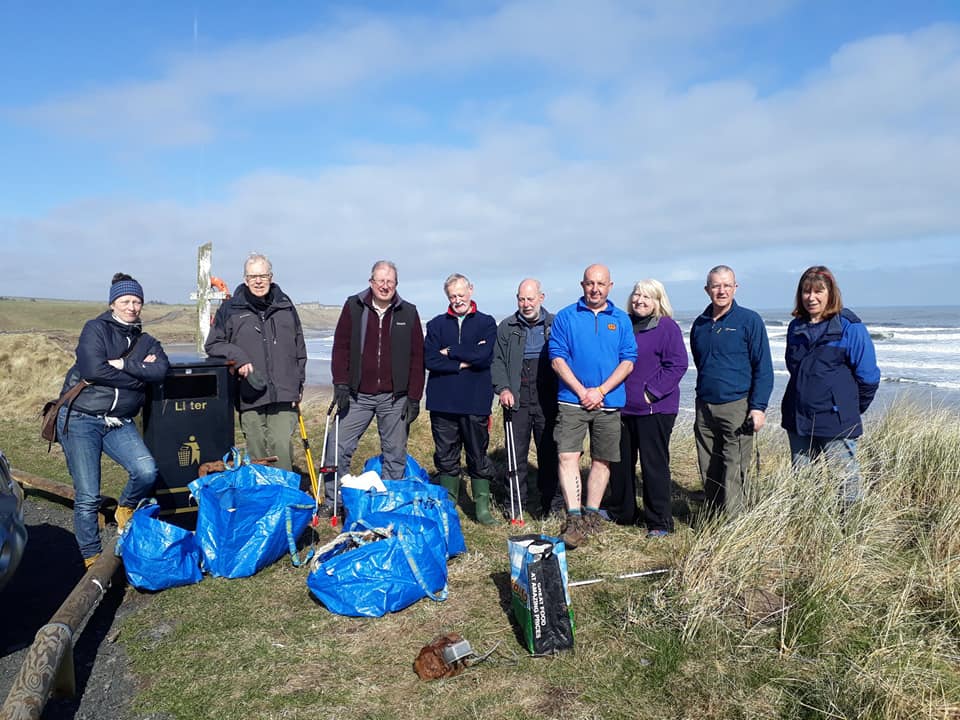
The organisation has a role for everyone from Conservationists and Site Wardens to Guides or Walk Leaders. The team also need Historic Environment Monitors, Wildlife Surveyors as well as Support Officers and Interns. Coast Care need volunteers who care about wildlife and the local environment, people who want to make a difference, those who want to add to their CV, or those who just want to become more active. The organisation needs people with energy, time and commitment, as well as those with practical skills or those who want to acquire new skills.
To find out a little bit about one of Coast Cares volunteering roles John, who is a volunteer Site Warden.
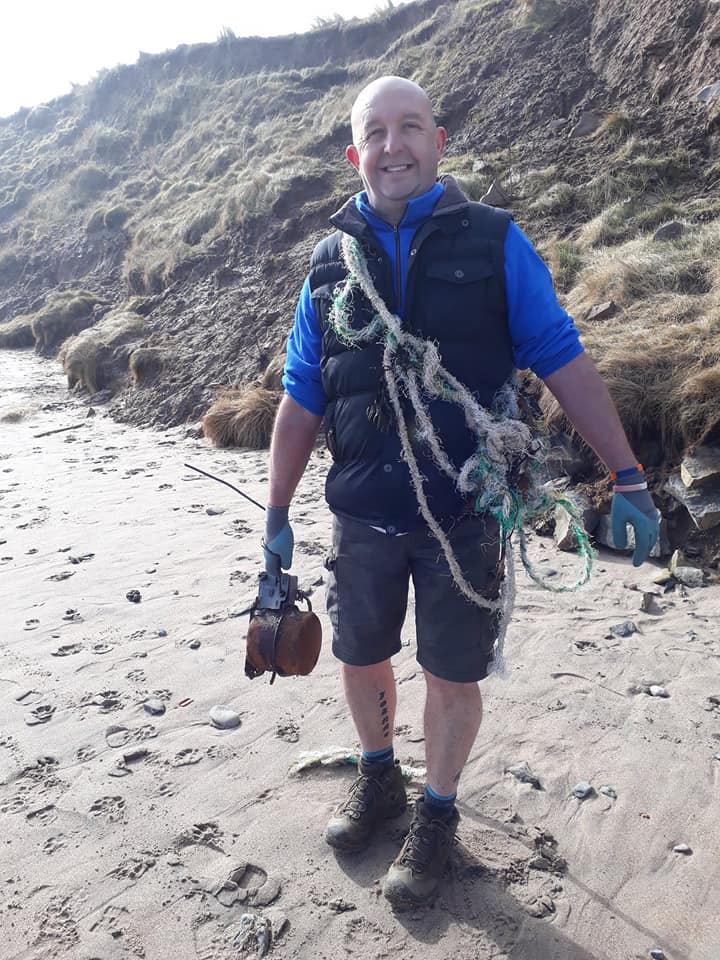
John participates in organised events such as beach cleans alongside 6-20 other volunteers. Amongst other things he removes litter from a given stretch of beach close to his family home. Items that turn up regularly include lobster pots, packaging, ropes and nets and even old tyres, but mostly his haul consists of “plastic… lots and lots of plastic”. Site Wardens check the beach for injured/deceased animals, report coastal erosion and make sure the beach is safe to access as well as removing litter. John records his findings, to let others know what he’s done and what still needs to be done. He writes down the hours he does too, because this is an essential component of Coast Care’s funding requirements. John was given an ID badge, has access to a range of tools including personal protective equipment and can claim travel expenses when needed.
John is originally from Yorkshire but moved to this area last November. He is currently semi-retired after spending 21 years as a Coffee Roaster. John has recently started a new part-time job but is determined to carry on volunteering because he enjoys it so much. John was drawn to this type of volunteering because he loves the outdoors and has “always had a real bugbear about litter”. He used to live in the Pennines and says he saw a beautiful environment ruined by people thoughtlessly discarding their litter.
John initially got involved after walking his dog on Bamburgh Beach, where he met a lady picking up rubbish. She told him about Coast Care and John subsequently emailed Anna (anna@coast-care.co.uk) to find out more. His first group beach clean was in mid-December and it made him feel really good, both physically and ethically. The role also helped John to settle into a new area and he has since met lots of new and interesting people who share his interests.
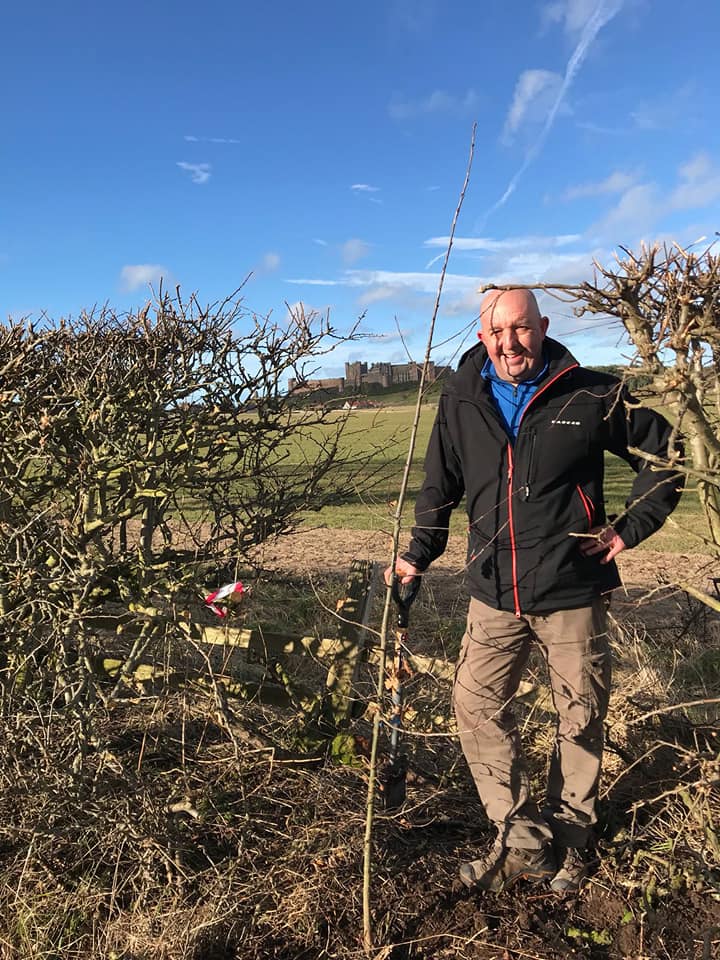
John had no pre-conceptions prior to his first day but remembers “rolling up to meet Anna and a few other volunteers on a cold and frosty December morning.” He felt immediately welcome and felt included, supported and appreciated. John said “it felt really good connecting with others and chatting whilst collecting beach debris”. John described feeling productive and positive about the amount of rubbish they had collected “I suppose you could say it was therapeutic. It seems a strange thing to use the words ‘enjoyed’ and ‘picking up litter’ in the same sentence, but I really did enjoy myself!”
John doesn’t only do the organised beach cleans though, he says he can do up to 10 hours of beach cleaning a week whilst out walking his dog “I do quite a lot of hours really” he laughs “even when I go for a walk in a country lane now, I find myself picking up rubbish!” John said he would encourage anyone to get involved and suggested people should contact Coast Care first for advice and support. John has helped to organise his own beach clean by getting together a group of like-minded Coast Care volunteers.
John feels he has developed new skills and learnt a lot about the coast both from his own practical experience and from the team at Coast Care. “I now know the damage that plastics, rope and discarded fishing nets have on wildlife and the beach!” What’s more he says “six months ago I had no idea about seabirds or seals but I can now pass on my knowledge to others…which I often do!” This is because Coast Care invest in training their volunteers. John has participated in several courses to date and hopes to complete further courses about “red squirrels, shore birds and butterflies.”
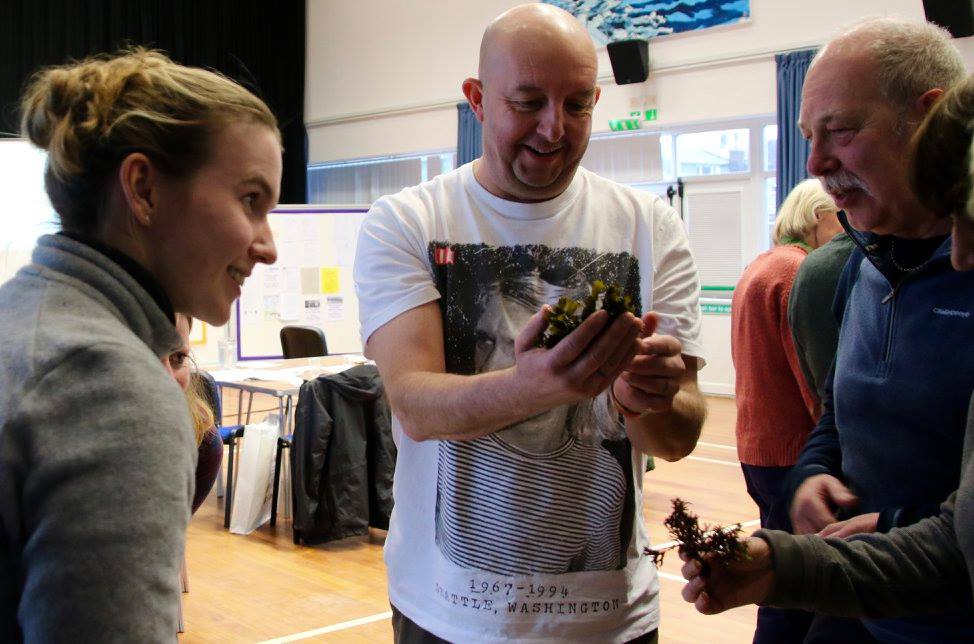
John said he feels valued “because Coast Care is always there to help, I respect their knowledge and nothing is too much trouble for them. I also feel as though they are investing in me as a person by offering training courses.” When asked what the most positive thing about his volunteering role is, John said “I like the ‘feel good’ factor after I’ve helped! I feel mentally and physically stimulated and I feel like I’ve done some good for others as well as myself”
If you would like more information about the roles that Coast Care offer, please visit http://www.coast-care.co.uk/ As John said “I personally would encourage anyone to take a look at the website as it really is informative or contact a member of the team” (info@coast-care.co.uk)
Alternatively, why not have a look at Northumberland CVA database of opportunities http://www.northumberlandcva.org.uk/volunteering if you are interested in researching the variety of volunteering roles currently available.
